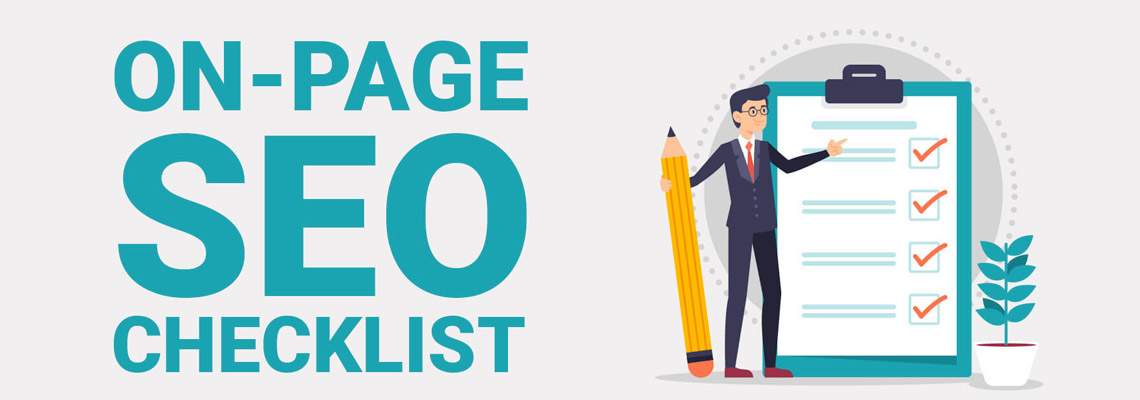It’s no secret that a successful online presence requires SEO and organic marketing for any business. But why is SEO so important, and what are some success stories?
Here’s a look at why SEO is critical for your online success, as well as some inspiring success stories.
SEO is important for several reasons

First, it can help you reach more people with your website or blog. By optimizing your content for search engines, you’ll make it more likely that people will find you when they’re searching for relevant terms. And the more people who see your content, the more likely you are to get new customers or clients.
Second, SEO can help build trust and credibility with potential customers or clients. If your website or blog appears near the top of search engine results for relevant terms, it will convey to visitors that you’re an authority in your field. This can help you build trust and credibility with potential customers, which can lead to more business.
Third, SEO can help you track your website or blog’s performance over time. By tracking your website’s or blog’s search engine rankings and traffic levels, you’ll be able to see how well your SEO efforts are paying off. This information can help you make adjustments to your SEO strategy as needed.
Finally, SEO is important because it’s a cost-effective way to promote your business online. Unlike other forms of online marketing, such as paid advertising, SEO is relatively affordable. And since it produces long-
8 Most Important SEO Factors
- Quality content
- Keyword research
- On-page optimization
- Link building
- Social media marketing
- Web analytics
- Technical SEO
- Conversion optimization
1. Quality content
Quality content is one of the most important SEO factors. If you want your website or blog to rank high in search engine results, you need to produce high-quality content.

What makes quality content? There are several factors to consider, including:
- The topic: Make sure your content is relevant to your target audience.
- The tone: Be sure to write in a tone that appeals to your target audience.
- The length: Generally, the longer the better. But don’t go overboard – aim for around 1,500 words or more.
- The quality of the writing: Make sure your writing is clear, concise, and error-free.
- The graphics: Use high-quality graphics and images to enhance your content.
If you can incorporate all of these factors into your content, you’re on your way to creating high-quality content that will rank well in search engines.
2. Keyword research
One of the most important aspects of SEO is keyword research. By finding the right keywords and including them in your content, you can improve your website’s or blog’s search engine ranking.

How do you find the right keywords? There are several methods you can use, including:
- Google AdWords: Google AdWords is a great tool for finding keywords. You can use it to find keywords that are being used by your competitors, as well as keywords that have high traffic levels.
- Google Trends: Google Trends can help you find popular keywords. You can use it to see how often a particular keyword is being searched for, as well as the competition for that keyword.
- WordPress SEO by Yoast: WordPress SEO by Yoast is a great plugin that can help you with your keyword research. It will give you suggestions for keywords to use, as well as help you track your progress.
- Ahrefs: Ahrefs is a great tool for finding keywords. You can use it to find keywords that are being used by your competitors, as well as keywords that have high traffic levels.
- SEMrush: Semrush is a great tool for finding keywords. You can use it to find keywords that are being used by your competitors, as well as keywords that have high traffic levels. Semrush also offers a variety of other useful features, including Competitor analysis, Backlink analysis, and Site audits.
3. On-page optimization
On-page optimization is another important aspect of SEO. On-page optimization refers to the process of optimizing your website or blog for search engines.

This includes factors such as:
- Title tags: The title tag is the most important on-page optimization element. Be sure to include your target keyword in your title tag.
- Meta descriptions: The meta description is another important on-page optimization element. Be sure to include your target keyword in your meta description.
- Headings: Headings are an important part of on-page optimization. Be sure to use Heading tags (H1, H2, H3) to structure your headings and subheadings.
- Alt-text: Alt text is the text that appears when you hover over an image. Be sure to include your target keyword in your alt text.
4. Link building
Link building is another important aspect of SEO. Link building refers to the process of getting other websites to link to your website or blog. The more links you have, the higher your website or blog will rank in the search engine results pages (SERPs).

There are several methods you can use to build links, including:
- Social media: You can use social media to build links. When you post content on social media, be sure to include a link back to your website or blog.
- Guest blogging: Guest blogging is a great way to build links. When you guest blog on someone else’s website or blog, be sure to include a link back to your site.
- Forum marketing: Forum marketing is another great way to build links. When you participate in forums, be sure to include a link back to your website or blog in your signature.
5. Social media marketing
Social media marketing is another important aspect of SEO. Social media marketing refers to the process of using social media to promote your website or blog.

By promoting your site on social media, you can reach a larger audience and improve your website or blog’s search engine ranking.
There are several methods you can use to promote your site on social media, including:
- Facebook: You can use Facebook to promote your website or blog. Be sure to create a Facebook page for your site and post links to your content regularly.
- Twitter: You can use Twitter to promote your website or blog. Be sure to create a Twitter profile for your site and post links to your content regularly.
- LinkedIn: LinkedIn is a social networking site for professionals. It is a great place to connect with other professionals, as well as promote your website or blog. You can use LinkedIn to share your content with a larger audience, and you can also use LinkedIn to advertise your site.
- Instagram: Instagram is a social media site that allows users to share photos and videos. Instagram is a great place to share your content with a larger audience, and you can also use Instagram to advertise your site.
- Tiktok: TikTok is a social media app that allows users to share short videos. It is a great place to share your content with a larger audience, and you can also use TikTok to advertise your site.
- YouTube: YouTube is a video-sharing website that allows users to upload, view, and share videos. It is one of the most popular websites on the Internet, and it is a great place to share your content with a larger audience.
6. Web analytics
Web analytics is the process of analyzing your website’s traffic. By analyzing your website’s traffic, you can identify which keywords are driving traffic to your site, and you can also identify which sources of traffic are most effective.

There are several web analytics tools available, including:
- Google Analytics: Google Analytics is a free web analytics tool that allows you to track your website’s traffic.
- Bing Webmaster Tools: Bing Webmaster Tools is a free web analytics tool that allows you to track your website’s traffic.
- Yahoo! Site Explorer: Yahoo! Site Explorer is a free web analytics tool that allows you to track your website’s traffic.
7. Technical SEO
Technical SEO refers to the process of optimizing your website’s technical elements. By optimizing your website’s technical elements, you can improve your website’s search engine ranking.
There are several technical SEO elements you can optimize, including:
- URL structure: Your website’s URL structure is important for SEO. Be sure to use a URL structure that is easy to understand and that includes your target keywords.
- Core Web Vitals: Core Web Vitals are a set of metrics that measure the performance of your website. Core Web Vitals are built on Largest Contentful Paint (LCP), First Input Delay (FID), and Cumulative Layout Shift (CLS).
- Page load time: Page load time is the amount of time it takes for a page to load. By optimizing your page load time, you can improve your website’s search engine ranking.
- Page size: Page size is the size of a page’s HTML code. By optimizing your page size, you can improve your website’s search engine ranking.
- HTTP status codes: HTTP status codes are signals that tell browsers whether a page has been loaded successfully. By optimizing your website’s HTTP status codes, you can improve your website’s search engine ranking.
8. Conversion optimization
Conversion optimization is the process of optimizing your website to encourage visitors to take the desired action. By optimizing your website for conversion, you can improve your website’s search engine ranking.
There are several conversion optimization techniques you can use, including:
- A/B testing: A/B testing is a technique that allows you to test two versions of a web page against each other. By A/B testing your pages, you can identify which version performs better.
- Calls to action: Calls to action are buttons or links that encourage visitors to take the desired action. By adding calls to action to your website, you can improve your website’s conversion rate.
- Landing pages: Landing pages are pages that are designed to convert visitors into leads or customers. By optimizing your website’s landing pages, you can improve your website’s conversion rate.
By following these eight keys to a successful web presence, you can improve your website’s search engine ranking and increase your traffic.
